The European Bioeconomy Network collaborates with:
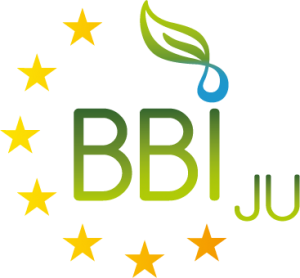
The Bio-based Industries Joint Undertaking (BBI JU) is a public-private partnership between the European Union and the Bio-based Industries Consortium (BIC) aiming to strengthen and structure the bio-based industries sector in Europe.
BBI JU’s mission is to implement, under Horizon 2020 rules, the Strategic Innovation and Research Agenda (SIRA).
This document, developed by BIC after wide consultation and endorsed by the European Commission, identifies the main technological and innovation challenges that need to be addressed in Europe’s bio-based economy.
BBI JU finances projects that address these strategic challenges through yearly calls for proposals.
The programme is fully open, so all SMEs, universities, research centres and other actors from all over the EU can create project consortia and apply for BBI JU funding by submitting a project proposal.
After an evaluation carried out by independent external experts following the Horizon 2020 rules, selected projects carry out activities to develop new bio-based building blocks, materials and products, stimulate research and innovation in Europe, bridge the gap between bio-based innovations and the market, and integrate economic actors along the value chain in the bio-based industries sector.
Call preparation, evaluation and project management fully respect the principles of transparency, openness, and excellence of the Horizon 2020 programme except for a few derogations specific to BBI JU.
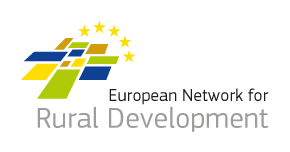
The European Network for Rural Development (ENRD) serves as a hub for exchange of information on how Rural Development policy, programmes, projects and other initiatives are working in practice and how they can be improved to achieve more.
The ENRD is not a membership organisation. Its work aims to engage and reach anyone with an interest in and commitment to rural development in Europe.
The ENRD supports the effective implementation of EU Member States’ Rural Development Programmes (RDPs) by generating and sharing knowledge, as well as through facilitating information exchange and cooperation across rural Europe. These activities are facilitated by two support units: the ENRD Contact Point and the European Evaluation Helpdesk for Rural Development.
Explore the following sections to find out more about how the ENRD operates, its governance structures and support units.
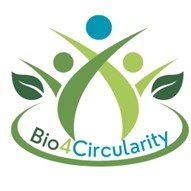
The mission of the B4C Network is contributing to a circular economy with innovative approaches, through conducting research projects, organizing professional events, and producing scientific publications which will support the smooth transition to circularity across the bio-based value chain. The B4C Network seeks to expand its existing partnership with recognized partners in order to emphasise joint contributions towards more circular systems, in support of strengthening the scientific knowledge base and international collaboration and provide supporting evidence for improved policy making. To this end, close collaboration will also be sought with various national and international institutions as well as industries working in field of bio-based solutions and circularity. The network will also contribute to the improved integration of bio- and circularity-based solutions in research, supporting professionals about the many interrelations this topic naturally offers.
Contact: info@bio4circularity.eu

ECBF is the first venture fund exclusively focused on the bioeconomy and the circular bioeconomy in Europe. With a target size of €250 million, to which the European Investment Bank (EIB) has committed €100 million, ECBF will be an important financial instrument in achieving the European Green Deal goals of making Europe climate neutral by 2050.
Contact: info@ecbf.vc

We connect markets and create relationships.
For years World Bio Markets (est. 2005) and Bio Market Insights (est. 2015) have delivered market leading events and content for our clients and readers around the world.
Now in 2021, we are simply known as Bio Market Insights. We are committed to connecting the bio market community for a personalized deal making experience.
If you are a buyer, investor, brand, processor, or end product looking for customers, investors or deals then we can help you connect.
We understand that it’s human connection that creates meaningful partnerships.
This news site delivers original content and business intelligence to professionals within the bioeconomy, and has a weekly newsletter with over 15,000 subscribers.
Contact: connect@biomarketinsights.com

The World BioEconomy Forum is a global platform for circular bioeconomy stakeholders to share ideas and promote bio-based solutions. We are fully committed to sustainability across the board and believe that climate change is real. As there is no one-size-fits-all bioeconomy, we have created a new tool to evaluate the status of the circular bioeconomy – the Four-Pillar Structure.
Contact: info@wcbef.com

Biobord is an online platform for bioeconomy developers. Biobord welcomes all who are interested in networking, finding people with shared interests, and sharing knowledge and ideas on the development of sustainable bioeconomy business.
Biobord is a place for:
- Sharing knowledge and learning from each other
- Networking to build partnerships and to connect with experts
- Finding support for developing your idea Interactive discussion with your stakeholders
- Co-working on joint projects with all information in one place – no email flood
- Communication channel for an audience of bioeconomy developers around the Baltic Sea
Contact: biobordplatform@gmail.com
Norway has the best conditions for transition to an economy based on renewable resources. We are constantly working to collect good examples of what bioeconomy is.
Contact:
Mari Engh
Norwegian agricultural cooperation
mari.engh@landbruk.no

The Lombardy Region has for some time now begun a process aimed at establishing aggregations on some of the key issues related to the future competitiveness of our economy.
Among the various issues identified there is Green Chemistry, meant as the bioeconomy engine key for the sustainable use of renewable raw materials.
Within this process, 4 entities – Consorzio Italbiotec, Innovhub-SSI, Milan Polytechnic, University of Milan – founded the Lombardy Green Chemistry Association-LGCA, which gave life to the Green Chemistry Cluster promoted and officially recognized by the Lombardy Region.
The development of the bioeconomy, the heart of which is represented by the green chemistry, is a compulsory step to face major global challenges: climate change, resource scarcity, environmental protection, multifunctional agriculture, health, improvement of living conditions of the population, new opportunities for growth and employment, strengthening the competitiveness of businesses.
Technological and scientific challenges, but also economic, social and political ones, as recognized both at European and national level, which require concrete and synergistic initiatives.
The Lombardy Green Chemistry Association proposes itself as an active part of this convergence in the process of involvement of all stakeholders interested, through the promotion of meetings, opportunities as well as interlocutor of the Region, national government and the European Union in the definition of policies and initiatives to support innovation, competitiveness and the bioeconomy.
Contact: segreteria@chimicaverdelombardia.it

Lithuanian Biotechnology Association (LBTA) is a legal entity established in 2003 on the basis of Lithuanian Society of Biotechnologists.
Currently LBTA unites companies developing and producing biotechnological products, providing services for life science sector, also Lithuanian universities and individual researchers actively participating in fundamental and applied science.
Lithuanian biotechnology association (LBTA) goal is to facilitate Lithuanian biotechnology sector to solve global life quality and environmental challenges.
Contact: info@lbta.lt
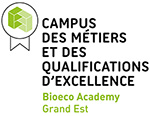
Les Campus des Métiers et des Qualifications bring together secondary and higher education, initial or continuing training establishments. Built around a sector of activity of excellence corresponding to a national or regional economic issue and supported by communities and companies, they facilitate the integration of young people into employment and allow companies to hire employees ” well trained “.
Contact:
Estelle Garnier
Directrice opérationnelle
estelle.garnier@univ-reims.fr
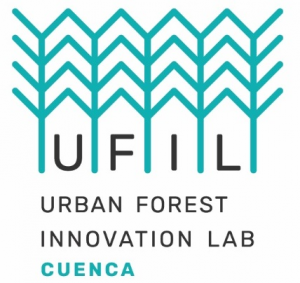
The project will involve individuals who would like to learn how to develop their own personal projects (CREATE), companies that wish to challenge their business regarding forest bio economy (CHALLENGE), and people, businesses, institutions and other agents who would like to become part of Cuenca’s forests’ bio economic ecosystem (CONNECT).
Contact:
Mariano Aragón
Promotion and Development Lead Cuenca City Council
maragon@cuenca.es

The Center for Biotechnology and Bioeconomy (CEBB) is a multidisciplinary research academic center, with a technological hall and a chemistry scale-up zone, at the heart of the biorefinery to the value of biomass and industrial by-products.
Supported by Grand Reims, the Department of Marne and the Grand Est Region, it brings together the complementary scientific and technical expertise of about 60 researchers from four entities: AgroParisTech, CentraleSupélec, NEOMA Business School and the University of Reims.
The complementary scientific expertise brought by each chair or unit covers the entire knowledge and competencies needed to create innovation and new technologies and turn them into industrial reality: white biotechnologies, green chemistry, process engineering, multi-scale modelling and studies of promising market tracks.
Through its activities, the CEBB ensures a pool of potential innovations that can be industrialized at the site level and even beyond. So, it proves the importance of academic research and its transfer to the socio-economic development of the territory.
Contact:
Honorine Katir
Operations and external relations manager
honorine.katir@cebb-innovation.eu

BioVale promotes and develops the circular bioeconomy across Yorkshire and the Humber.
As the world faces up to its challenges, one solution is to shift away from fossil fuels in favour of a greener economy which uses renewable, biological resources.
As Yorkshire and the Humber’s innovation cluster, BioVale promotes our region as a thriving centre for this new, bio-based economy and helps enterprise profit from its high-growth, future-proofed business opportunities.
Contact:
Emma Needham
Communications Manager
emma.needham@york.ac.uk
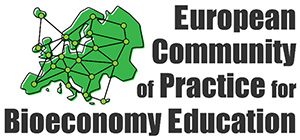
The goal of the ICA Community of Practice for Bioeconomy Education (ICA CoP Bio-Edu) is to enhance the quality, offer and diversity of education for the sustainable circular Bioeconomy in Europe, by bringing educational actors in contact with each other, both virtually and face to face.
Together, they form a professional network, to
- share experiences and good practices among educational actors coming from different educational sectors and regional perspectives,
- consult with industry and other stakeholders about skills demands and educational outcomes can be organized.
- develop educational projects to develop and evaluate new educational materials, strategies and innovative training concepts.
A combined effort of professionals working on related goals will enhance the outcomes of education and training for the sustainable circular bioeconomy. The ICA CoP Bio-Edu will address experience exchange, up-skilling and training among faculty and teachers, which is a first and necessary step to promote the education of an adequately skilled workforce for the Bioeconomy.
Contact:
Han van Osch
ja.vanosch@avans.nl
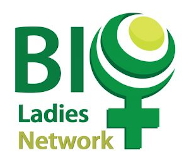
The Bioladies network was originally created to provide women working in the bioeconomy with opportunities to:
- interact with each other
- share knowledge and professional contacts
- provide and receive mentoring and other support and development advice
Although empowering women in the bioeconomy is still our primary goal, we have now evolved into an inclusive and safe space for all. Therefore, anyone from all sectors of the bioeconomy is welcome to join the network. We have members from academia, R&D, policy information, outreach, consultancy, and various industries including construction, agriculture, food, packaging, biopesticides. Through sharing views we gain a holistic view across all sectors of the bioeconomy, bring about the transfer of knowledge and identify opportunities
Contact:
Iris Aquilina – founder
bioeconiris@gmail.com
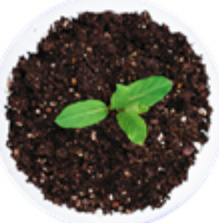
The overarching goal of BioSkills is to promote education, training and skills across the bioeconomy and contribute to the development of educational and training content, methods, tools and structures to achieve a mainstreaming of bioeconomy into education and training, and ensure that bioeconomy figures more prominently in relevant studies such as agricultural, forestry, fisheries, aquaculture, marine and environmental studies as well as in food science and systems, bioengineering and other biobased sector-related studies. More specifically, the study also aims to provide an overview of current training and education programme availabilities at different levels (Higher Education, Vocational Education and Training and Entrepreneurship Education) in the bioeconomy and to assess current and future (2030 and 2050) needs for professional profiles and skills, setting out unmet training and educational needs. Furthermore, the study aims to support the relevant upgrade, adaptation and development of bioeconomy-related training and education to meet future workforce needs for the deployment of a sustainable and circular bioeconomy. Moreover, it aims to improve collaboration between educational institutions and industry, and improve transfer of science, technology and innovation knowledge and skills in the bioeconomy, as well as to improve the attractiveness and access to postgraduate education in the field of bioeconomy.
Contact:
Dr Stefan Lilischkis, empirica Gesellschaft für Kommunikations- und Technologieforschung mbH on behalf of the BioSkills consortium
Stefan.lilischkis@empirica.com


